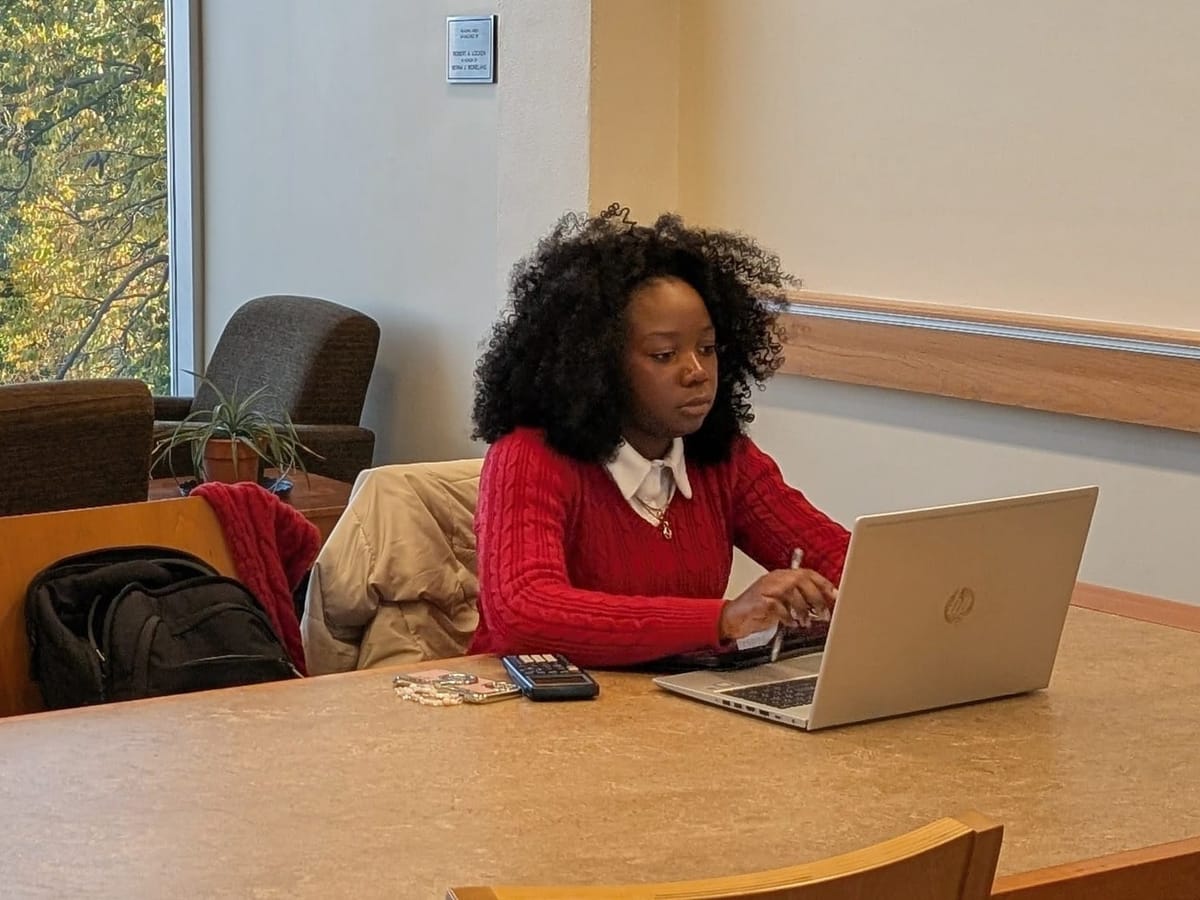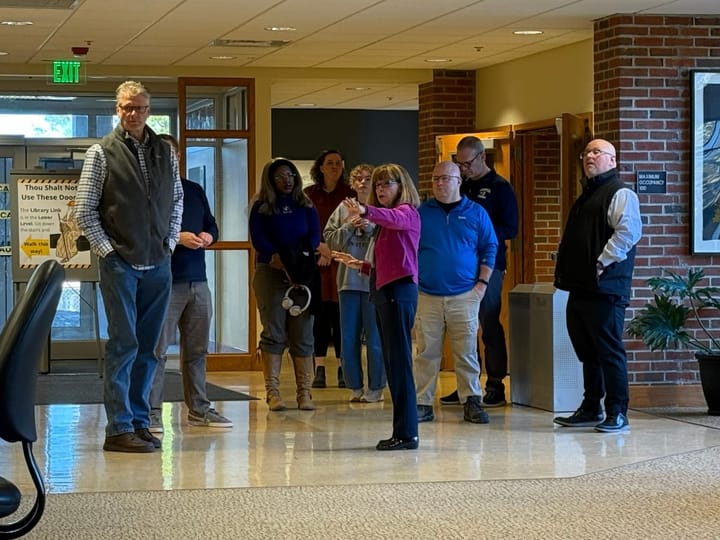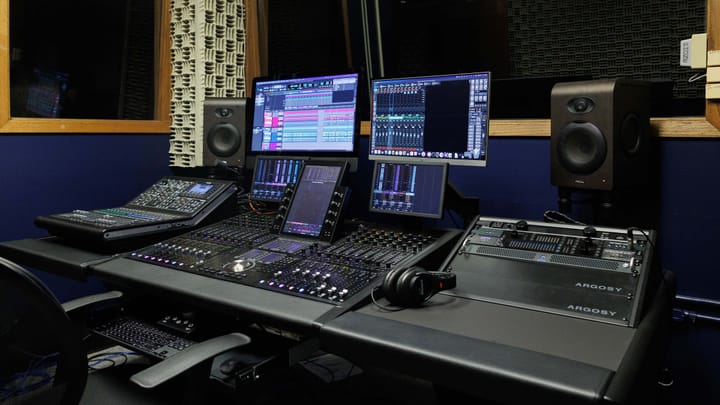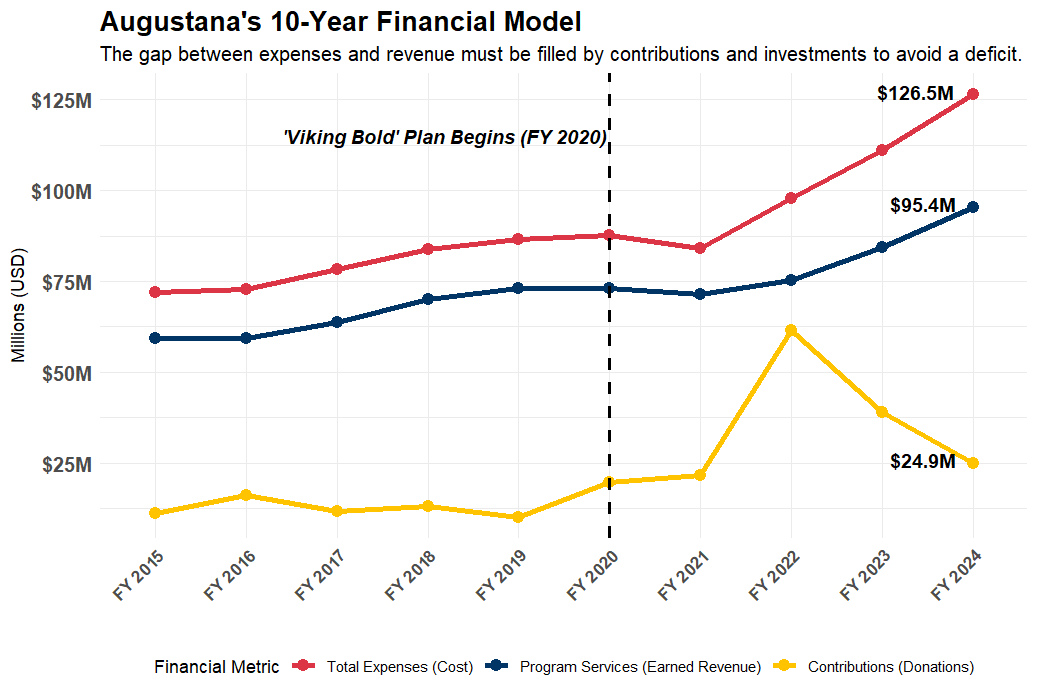Reimagining campus spaces

Task force acts as major debt payments loom
Following a year-long audit, Augustana’s Space Utilization Task Force has until the middle of spring semester to propose specific changes to how the university uses its space. That process now includes student representation through a newly formed sub-task force focused on the Mikkelsen Library.
The push for these changes comes as the university faces the dual pressures of serving a larger student population and new financial constraints. Augustana’s rapid growth since 2019 through the Viking Bold strategic plan has left many departments scrambling to find space to match their expansion.
Roxanne Stevens, dean of the Rydell School of Business, said the space crunch is creating “huge” waitlists because many classrooms in the Madsen Center are too small to accommodate large business classes.
“We just don’t have the classroom space to offer all the classes that our students need,” Stevens said. “We have carved out every nook and cranny that we can to just get desks in here.”
The shortage of suitable classrooms, Stevens said, has forced faculty to teach in unconventional spaces, including the room attached to the Wagoner Hall kitchen.
Insufficient space also affects faculty offices. In the Madsen Center, former storage rooms have been converted into offices, with some of the new walls not reaching the ceiling.
To ease the strain on physical buildings, administrators are also changing how and when classes meet. Peter Folliard, vice president of innovation and dean of the School of Music, said the university is expanding online and hybrid class offerings to meet student demand and free up physical classrooms.
Scheduling is also being re-evaluated: Jenny Gubbels, dean of the College of Arts and Sciences, confirmed some science labs have already moved to Mondays and Wednesdays to better utilize lab space in the Froiland Science Complex.
Rick Tupper, associate vice president of campus safety and co-chair of the task force, explained that building new space isn’t a simple solution, calling a new academic building a “five-year project” and noting the high cost of acquiring and developing new property.
The task force’s mission, he said, is to “repurpose spaces” to make them more efficient.
That focus on repurposing space comes amid tightening finances. According to public Form 990 tax filings, Augustana posted a $2.6 million operating deficit in 2024 — the same year it began annual $1.16 million payments on the Reliabank loan for the Midco Arena.
That financial pressure is expected to increase significantly. Audited financial statements show scheduled bond and loan payments rising from $479,000 in 2025 to more than $1.5 million in 2026. Those mounting costs make finding low-budget, space-efficient solutions even more urgent for the task force.
The task force, co-chaired by Provost Joel Johnson and Tupper, includes representatives from facilities, IT, campus projects, student affairs and faculty. While this main group of administrators and faculty moves into its decision-making phase, a student voice is just now being added to the library sub-task force: junior Abigail Smith, who serves on the co-curriculum committee of the Augustana Student Association.
Smith said that student representation is essential to provide a direct perspective on student needs. She plans to prioritize two main goals: preserving study rooms for student use and adding more seating options to accommodate the growing student body. Smith has already requested that a second student be added to the group to better represent these interests.
Smith questioned whether the library needs to be ‘reimagined’ at all, suggesting that its current strengths should be built upon rather than replaced.
“What do you mean by [reimagining], and does it need to be reimagined?” Smith said. “Or can we build upon the already positive aspects of it? Because I already think the library is doing a great job.”
Folliard acknowledged that attachment to spaces is natural, especially on a campus where people spend years forming routines and memories. But he said change is inevitable — and necessary — as the university grows.
“If we’re open toward change, then we can guide it,” Folliard said. “If we’re afraid of it, you just end up getting hit by the change car.”



